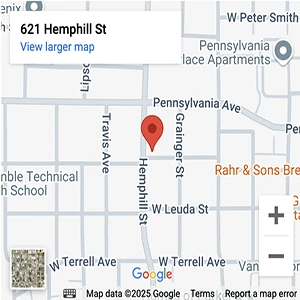Are Sobriety Checkpoints Legal in Texas?
Drunk driving is a serious problem around the nation, and each state takes its own measures to prevent it. According to the Centers for Disease Control and Prevention, sobriety checkpoints are one of the most popular strategies for deterring drunk driving and identifying offenders.
Sadly, despite law enforcement officials’ best efforts, collisions involving inebriated motorists injure and kill thousands of innocent people around the country every year. In Texas alone, for example, the CDC reports that more than 13,000 people died in car accidents involving drunk drivers between 2003 and 2012.
If you sustained debilitating injuries in a collision with a drunk driver, you may have grounds for a personal injury claim. To discuss your case with an experienced accident lawyer in Tyler, contact the Cooper Law Firm.
Attorney N. Eric Cooper is a member of the Texas Trial Lawyers Association and the Gregg County Bar Association, and he will help you fight for the maximum settlement. If your case goes to trial, Mr. Cooper has the litigation experience to represent your interests in court. Call 903-297-0037 to schedule a free case evaluation.
Are Sobriety Checkpoints Legal in Texas?
Typically, law enforcement personnel must have probable cause in order to conduct a traffic stop and check for signs of impairment. By conducting sobriety checkpoints, though, police can pull over vehicles without probable cause in an attempt to identify intoxicated motorists.
According to the Governors Highway Safety Association, law enforcement officials do not conduct sobriety checkpoints in Texas because the state has interpreted them as unconstitutional; however, checkpoints are conducted in the surrounding states including New Mexico, Oklahoma, Arkansas, and Louisiana. Additionally, all 50 states have an implied consent law, which means if police do have probable cause to pull you over, you could face severe penalties if you refuse to take a breathalyzer test.
What Is Implied Consent?
Pursuant to Texas Transportation Code Section 724, motorists must consent to chemical tests when officers have probable cause to believe they are intoxicated. Drivers who refuse to submit to a blood alcohol concentration test will face an immediate license suspension, regardless of whether they are actually impaired.
The penalties for refusing to take a BAC test are not as severe as those for a first-time DUI conviction. Sadly, some motorists use this as an allowance to drink and drive with the plan that they will simply refuse to take a chemical test if police conduct a traffic stop.
If you were injured in a collision with a drunk driver, a Tyler personal injury lawyer can guide you through every step of the claims process. Turn to the Cooper Law Firm to discuss your case and determine the best way to proceed.
Attorney N. Eric Cooper is proud to represent accident victims throughout east Texas. Call 903-297-0037 to schedule a free consultation. You can learn more about drunk driving accidents in Texas by visiting USAttorneys.com.


















